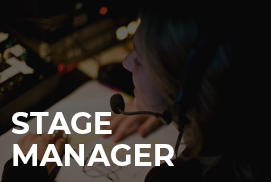

The esports industry has been on the rise in recent years, with more and more individuals pursuing careers within the field. One such career path is that of a Stage Manager, an essential role in the production of esports events. In this article, we will explore what a Stage Manager does in the esports industry, and how this role ties into the overall production of esports events.
A Stage Manager is a professional who is responsible for the coordination and management of all technical and artistic elements of a live event. They are responsible for ensuring that everything runs smoothly and that the event is delivered on time and to a high standard. A Stage Manager’s role is critical in the overall success of an event, and they work closely with the production team, event organizers, and talent to ensure everything runs smoothly.
In the esports industry, the role of the Stage Manager is no different from that of traditional live events. However, there are unique challenges that come with producing esports events. Esports events can range from small community events to large-scale productions with millions of viewers worldwide. In any case, the Stage Manager’s role is to ensure that the event runs smoothly, and that all technical and artistic elements are delivered to the highest standard possible.
Esports events typically involve a lot of different moving parts, including gameplay, commentary, graphics, and sound. The Stage Manager is responsible for ensuring that all these elements are integrated seamlessly into the event. They work closely with the technical and production teams to ensure that everything is in place and ready to go before the event starts.
During the event, the Stage Manager is responsible for coordinating all technical and artistic elements, including camera angles, lighting, sound effects, and graphics. They work closely with the broadcast team to ensure that everything is captured on camera and that the audience can follow the action seamlessly. The Stage Manager is also responsible for cueing in talent, ensuring that everyone knows their cues, and that the event runs smoothly.
To become a successful Stage Manager in the esports industry, there are certain skills and attributes that you must possess. These include:
Excellent organizational skills: As a Stage Manager, you will be responsible for coordinating many different elements of an event. You must have excellent organizational skills to ensure that everything runs smoothly.
Attention to detail: You must have a keen eye for detail to ensure that all technical and artistic elements are delivered to the highest standard possible.
Good communication skills: You must have excellent communication skills to work effectively with the production team, talent, and event organizers.
Time management skills: You must be able to manage your time effectively and ensure that everything is delivered on time.
Creativity: You must be able to think creatively and come up with innovative solutions to technical and artistic challenges that may arise.
The role of the Stage Manager is critical in the overall success of esports events. They are responsible for coordinating all technical and artistic elements of an event, ensuring that everything runs smoothly, and that the event is delivered to a high standard. If you are interested in pursuing a career in the esports industry and have a passion for live events, then a career as a Stage Manager could be a perfect fit for you. With the right skills and experience, you could play a vital role in the production of some of the biggest esports events in the world.
